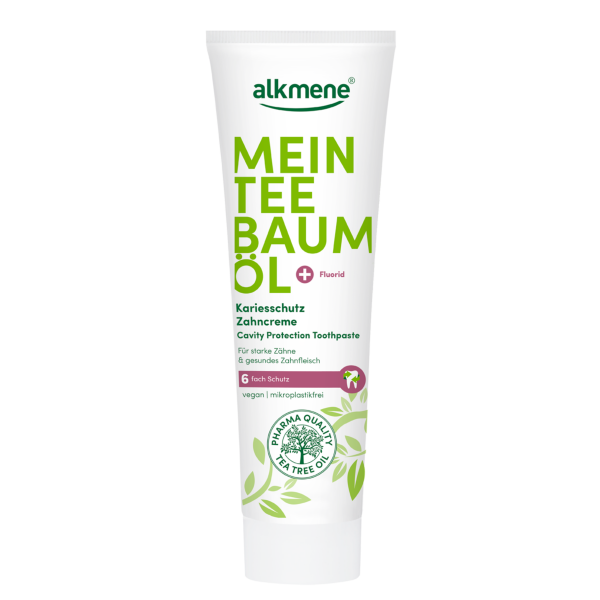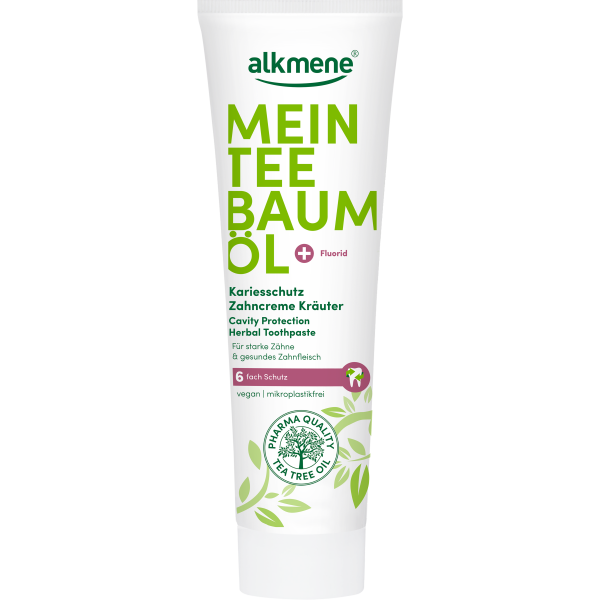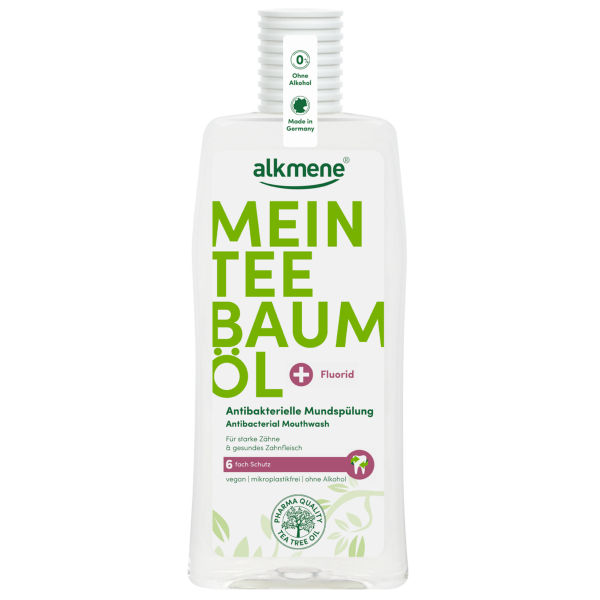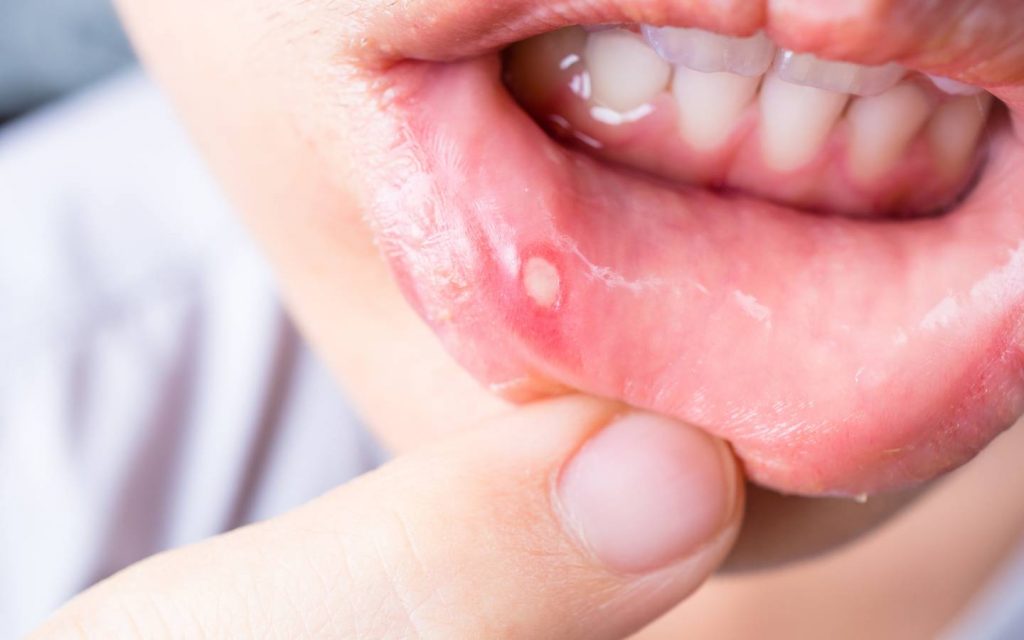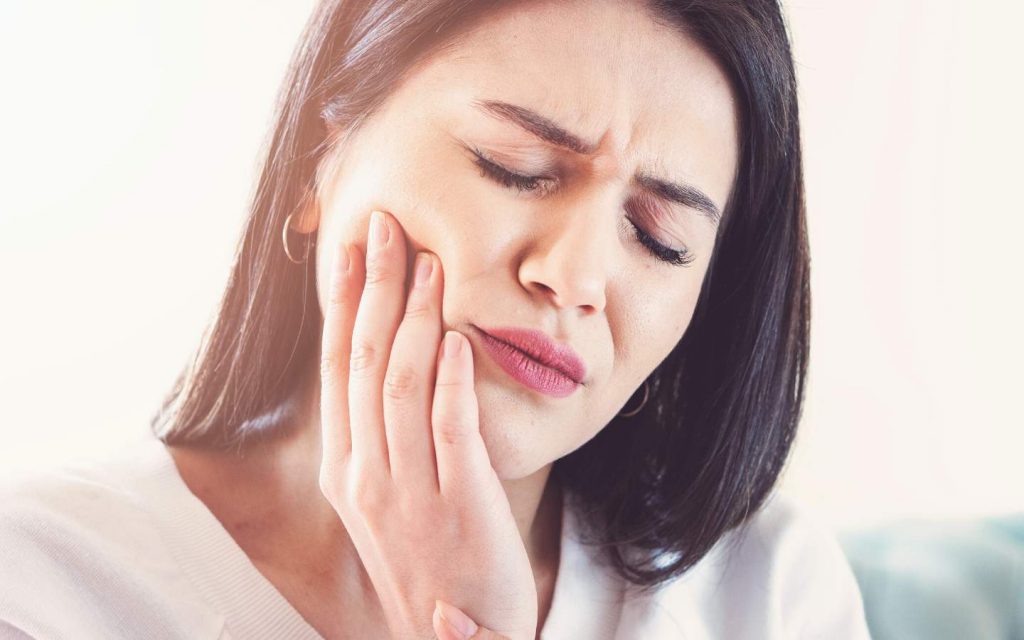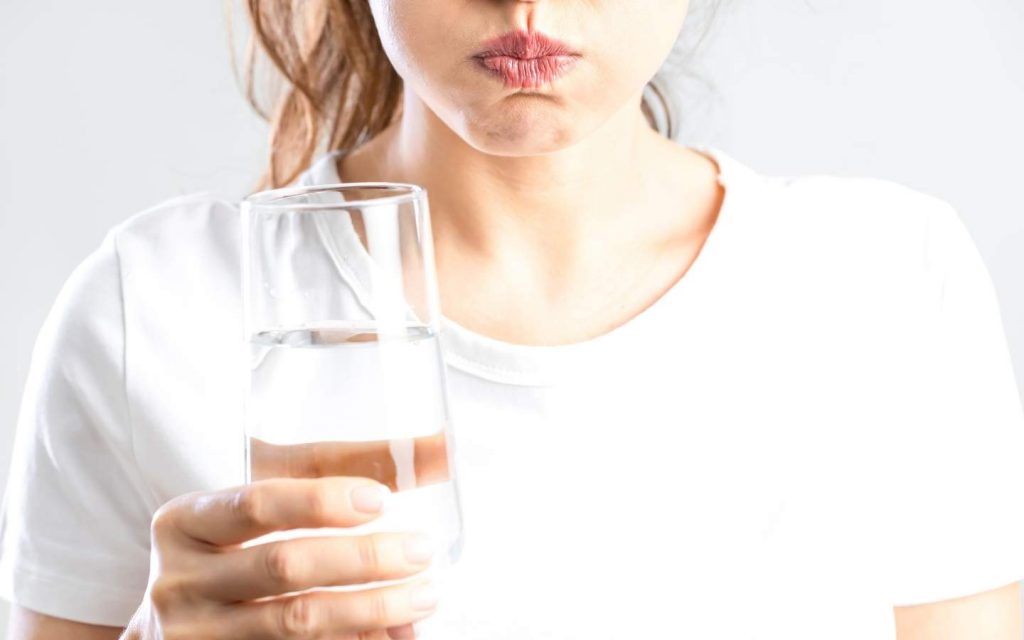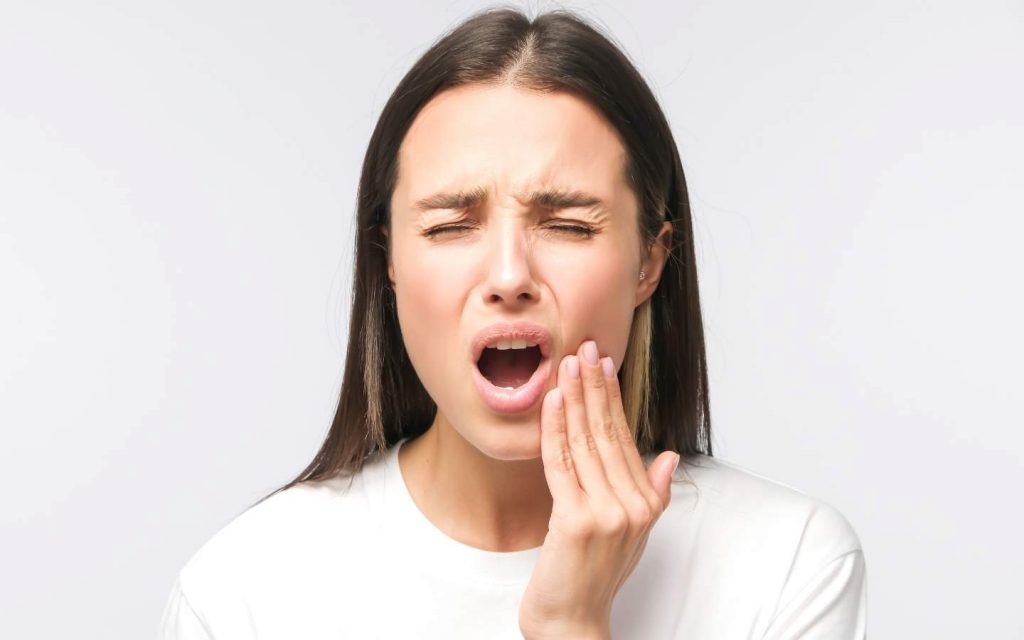


This article has been reviewed by:
Birgit Schlee
Dental hygienist
Everyone probably has bleeding gums from time to time. But do your gums hurt more often, have a reddish color now and then and are swollen? We tell you what you can do in this case, what the possible causes could be and how you can prevent gum problems.
Gums hurt - What could be the reason?
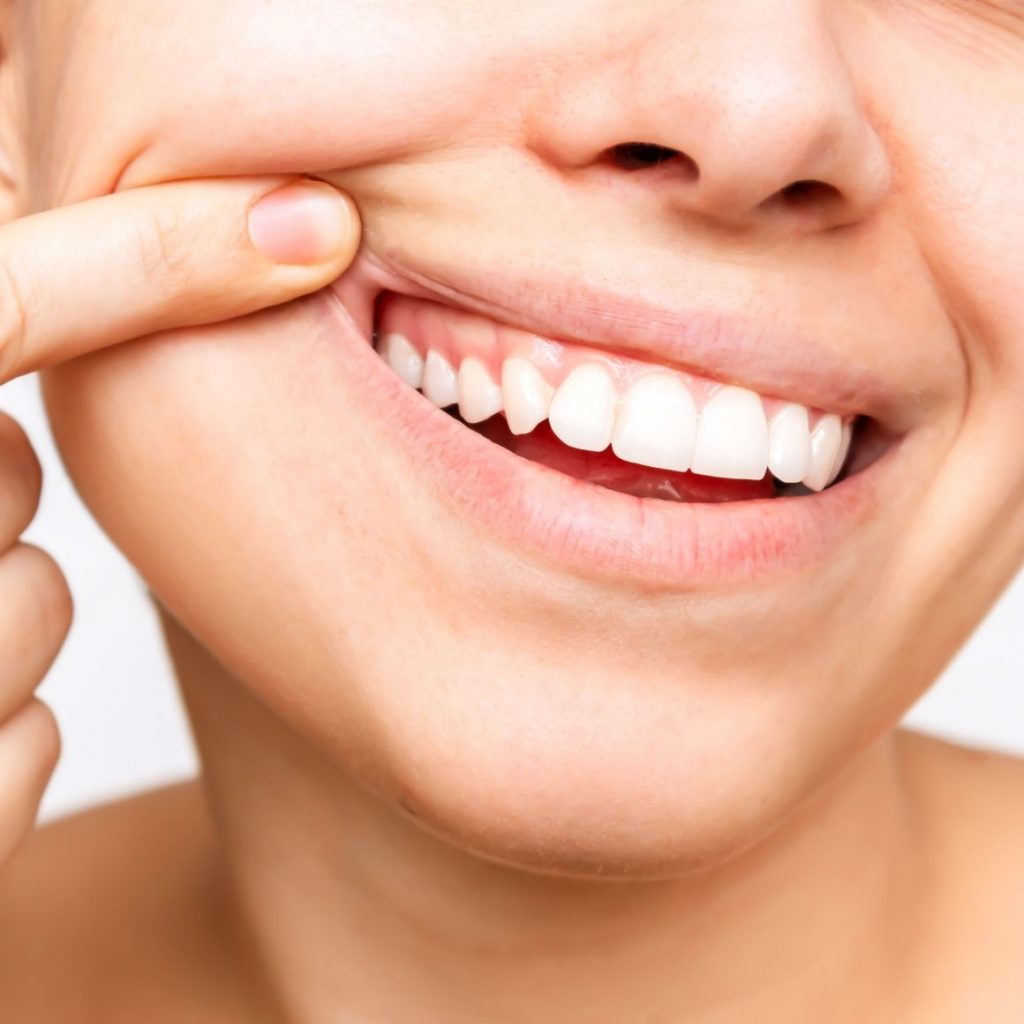
First of all, it is important to know what healthy gums look like:
It has a pale pink color (if you have a darker skin tone, it will have a darker color), sits tight and firm against the neck of the tooth, and should not bleed or cause pain without injury.
If the latter is the case or if the gum is reddish in color, it may indicate gingivitis.
You can see the exemplary appearance of healthy gums on the picture.
Red, swollen gums hurt - What to do?
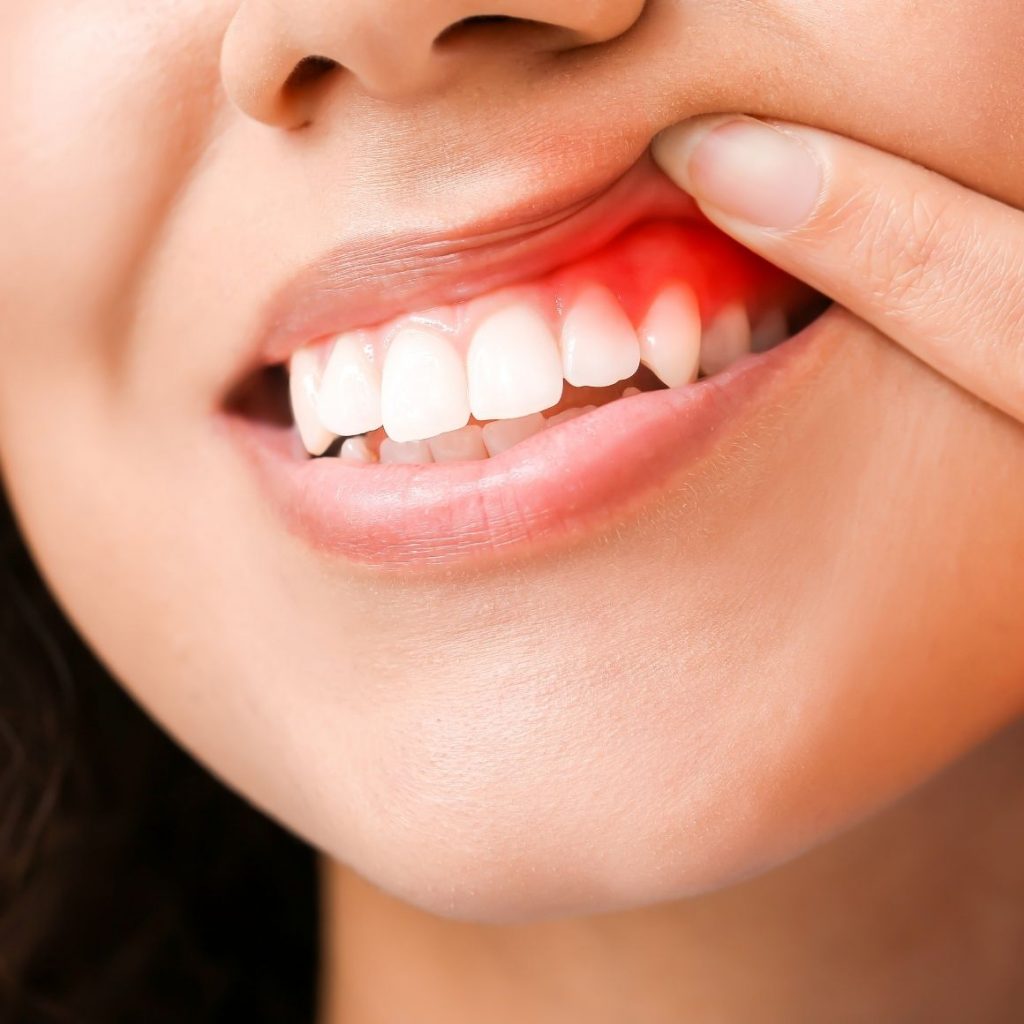
As with any inflammation, the body also tries to become active in the case of gingivitis by increasing the blood supply to the affected area. For this reason, inflamed gums bleed quickly – a first warning signal. Further symptoms are swelling and redness, only later can pain be added, because when it first occurs, gingivitis is often not painful.
The most common cause of gingivitis, also known as inflammation of the gums, is the formation of bacterial plaque at the gum line. Your dentist can diagnose and treat gingivitis. If your gums hurt, turn red or swell every now and then, you should have the symptoms checked. If nothing is done about gingivitis, the inflammation can spread to the entire dental apparatus. This is known as periodontal disease.
Prevent gingivitis
In order to avoid the recurrence of gingivitis after a successful treatment, you can apply the following tips to prevent gingivitis:
- Brush your teeth twice a day (If you want to know how to brush your teeth properly read this post).
- Use an additional antibacterial mouthwash to clean the entire mouth and prevent bacterial plaque (read this article to find out why an antibacterial mouthwash is useful)
- Clean the interdental spaces with dental floss or an interdental brush
- Eat as far as possible sugar-free foods, so as not to provide the bacteria with even more nutrients
- Eat a balanced diet to meet your needs for nutrients such as carbohydrates, proteins, fats, and vitamins and minerals.
- Visit your dentist regularly for a professional dental cleaning (dentists recommend once a year)
For natural and good dental care, dental hygienist and expert Birgit Schlee recommends her patients the dentally tested MY TEA TREE OIL dental care products from alkmene.
Our product tip for a healthy mouth: MY TEA TREE OIL Antibacterial Mouthwash with tea tree oil and fluoride. It reduces bacterial plaque and thus prevents one of the most common causes of gingivitis.
![]()
